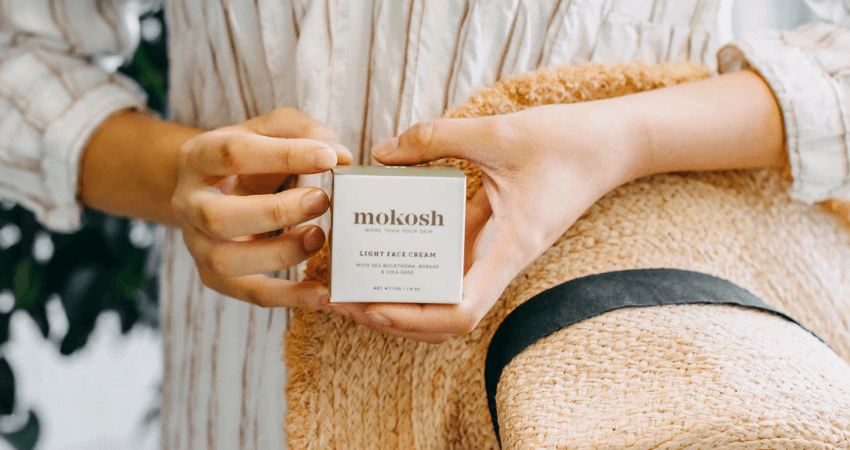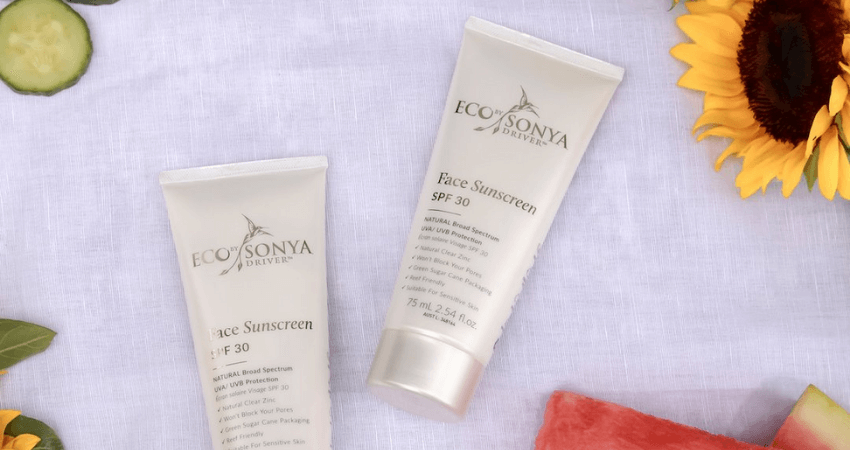The consistency and hydration of a day and night cream differ. A day cream is lighter in texture, allowing it to be quickly absorbed into the skin, while a night cream is heavier and takes longer to soak into the skin. The idea of a night cream is to deeply nourish and repair your skin while you sleep, while a day cream provides light moisture after cleansing your skin in the morning.
Neither day nor night cream is better – each has its place in your regular skincare routine. The important thing is understanding the difference between day cream and night cream and what to look for in each. The skin on our faces is thinner than the skin on our bodies which makes it more fragile and prone to dehydration. The skin on our face is also prone to sun damage and pollution in the air, which speed up the skin’s ageing process. The purpose of a day cream is to hydrate and protect the skin. A day cream locks in moisture on the skin – providing a protective layer that prevents water and moisture loss from the skin’s surface. A day cream generally has a lighter consistency that sinks into the skin quicker. This makes it great for applying before sunscreen and makeup.
A night cream tends to have more of a restorative and repairing role. Because you apply a night cream before bed, you don’t have to worry about it sinking into the skin quickly. This means that a night cream can have more nourishing ingredients and a richer consistency that actively targets your skin concerns. A night cream is usually full of natural oils and plant extracts that have certain healing properties.

In short, yes. A night cream is essential if you want to level up your skincare routine. While a day cream will help retain moisture, it won’t be as good as a night cream at producing visible skincare results. Night cream for your specific skin goals or needs is essential if you want to use skincare to get clearer, healthier and all-round better skin. On the flip side, a specific day cream is essential for ensuring your skin is protected. Some day creams will have vital SPF and antioxidant properties that will protect your skin from free radicals and pollution in the air.
The moisturiser you choose to use in the day and at night will depend on your skincare routine, goals and concerns. Those with oily skin might like to use an oil-free moisturiser during the day for its lightweight consistency, and an oily-skin-approved nighttime moisturiser in the evening for oil-balancing. Those with sensitive skin will want to look for a moisturiser that has calming and cooling properties. The Acure Seriously Soothing range has the best moisturiser for sensitive skin. You can use the Day Cream in the morning and the Cloud Cream at night for less red and calmer skin. The best moisturiser for dry skin is one that has lots of nourishing plant oils and butters. Jojoba oil is a great moisturiser option for those with dry or aging skin as it can actively restore moisture at the cellular level. If you have very dry skin, you might like to use a night cream as your morning moisturiser – for deep hydration.
You should wear SPF or sunscreen every day, no matter the season. During the winter you can get away with SPF 15, but during summer it’s important to use SPF 30 or 50. Most people remember to put sunscreen on their bodies but forget their faces. There are two ways you can ensure you’re keeping the skin on your face protected – using a moisturiser with spf or sunscreen for face. A moisturiser with SPF will tend to have a lower spf than a sunscreen for face, which makes it great on days you’re mostly inside or the UV rays are low. Sunscreen for face, however, is like regular sunscreen but it’s been formulated to wear nicely on the face. Eco by Sonya sunscreen for face has SPF 30, rubs in clear and has a soft matte finish.

It is important to cleanse your face in the morning to remove impurities that are drawn out through the skin while you sleep. After washing your face, pat your skin dry with a gentle towel (do not rub as this can cause micro-tears in the skin and contribute to skin damage) and follow with a spritz natural toner. Toner not only helps to tighten pores but also provides a light layer of damp which allows moisturisers and serums to absorb into the skin properly. Next, apply a natural day cream, followed by an all-natural eye cream. Daytime eye serum can help to firm fine lines and crows feet, and some can help to reduce puffiness and dark circles under the eyes. If your skin is dry, you may apply an organic facial oil as the last step. A small amount of rosehip oil dabbed over the skin can help to give your skin a natural glow.
If you wear makeup, you must always take this off before going to sleep. If you're like most of us at the end of the day and taking off your makeup seems tedious and tiring, try using natural makeup wipes. Makeup wipes are so quick and easy to use, they make removing makeup a breeze. Following with a natural cream cleanser will help to deeply cleanse your skin and remove any remaining dirt and grime that may be stuck in your pores. Again, towel dry your face gently. Next, follow with a serum if you use one and then a night cream. A night eye cream, similar to a night moisturiser will provide extra nourishment to reduce dry and crepey skin around the eyes.
RECOMMENDED PRODUCTS